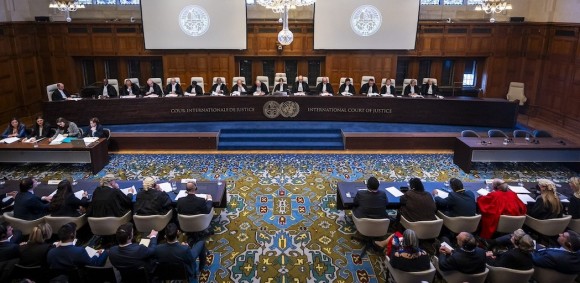As South Africa submitted evidence of genocide against Israel to the International Court of Justice (ICJ) on Monday, the Israeli Knesset passed controversial legislation banning the United Nations Relief and Works Agency for Palestine Refugees (UNRWA) from operating within Israeli-controlled territories.
The legislation bars UNRWA from continued operations in Gaza, the West Bank, and East Jerusalem. It also prohibits Israeli authorities from interacting with the agency, now classified by Israel as a “terror group”. The agency will be required to close its offices within 90 days.
International voices have criticised the decision, with some warning it could worsen the humanitarian crisis by disrupting critical services for Palestinian refugees.
ALSO READ: ICJ ruling won’t change Israel’s behaviour: three reasons why (January, 2024)
Israeli Prime Minister Benjamin Netanyahu defended the legislation.
“UNRWA workers involved in terrorist activities against Israel must be held accountable… we stand ready to work with our international partners to ensure Israel continues to facilitate humanitarian aid to civilians in Gaza in a way that does not threaten Israel’s security.”
UNRWA workers involved in terrorist activities against Israel must be held accountable. Since avoiding a humanitarian crisis is also essential, sustained humanitarian aid must remain available in Gaza now and in the future.
— Prime Minister of Israel (@IsraeliPM) October 28, 2024
Meanwhile, South Africa’s legal team presented a case document of evidence to the ICJ, alleging that Israel’s actions in Gaza meet the criteria for genocide. The document (said to include over 750 pages supported by 4,000 pages of exhibits) alleges forced displacement, denial of humanitarian aid and intent to commit genocide.
“The Memorial contains evidence which shows how the government of Israel has violated the genocide convention… causing conditions of life which are aimed at their physical destruction and and ignoring and defying several provisional measures of the International Court of Justice, and using starvation as a weapon of war and to further Israel’s aims to depopulate Gaza through mass death and forced displacement of Palestinians,” said spokesperson for the Presidency in South Africa, Vincent Magwenya.
The ICJ has set July next year as the deadline for Israel’s legal team to submit its counterargument, though experts say a final ruling on the matter could still be years away.
READ MORE: ICJ latest developments on genocide case, South Africa v. Israel


